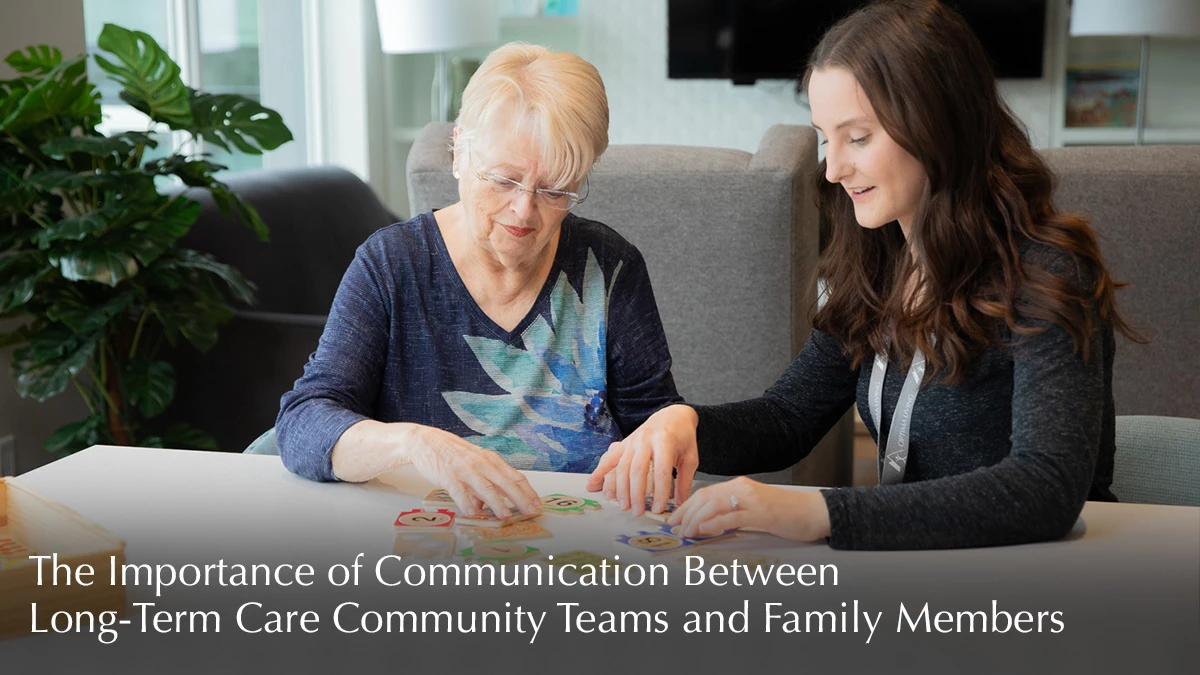
When someone is a resident in a Long-Term Care community, the importance of communication between the team and the family cannot be overstated. It is so important that there has even been considerable research into the role it plays.
Sometimes the individual in Long-Term Care may not be willing or able to communicate everything they want or need. In this case, the family can play an important part in the care plan by filling in gaps in their loved one’s medical history, likes, dislikes, and habits. Further to that, good communication allows the team and family to form a care community around the resident, ensuring their needs are always met and they feel safe, heard, cared for, and welcomed home every day.
Advantages to the Resident
Good communication between the team and family is a relief to the resident. For example, residents do not have to be preoccupied with explaining to a family member about a change in medication or activities or schedule, because they know the team will take care of it. Being happier and more relaxed has a positive effect on both physical and mental health.
Advantages to Family Members
Families are happier when they understand what is happening with their loved ones at all times. By receiving regular updates, family members are less stressed, worried, or preoccupied and feel on top of the care plan. Just from receiving regular updates, family members know their loved ones are getting the compassionate care and attention required.
With the help of regular communication, family members not only feel more involved, but also tend to get more involved in care and visit more frequently. This has a domino effect on making the resident happier and more relaxed and improving the resident’s health and overall quality of life.
Advantages to the Team
When residence teams communicate regularly with family members, they keep family apprised of any changes in the physical or mental health of the resident. They can help families understand a disease process, and also the policies and procedures of the care community. This prepares family members for visits, and helps them to understand how the resident is cared for every day.
Combatting Loneliness in Seniors
Good communication also extends beyond the role of the resident’s immediate care team. An often overlooked advantage of life in a community setting is just that—community! At Optima Living, we are proud that our residents have endless opportunities for group activities and outings that encourage the creation of new and rewarding friendships. The Government of Canada reports that about 30% of Canadian seniors are at risk of becoming socially isolated. Optima Living is happy to play a part in the solution of this growing problem.
How this compassionate communication takes place may vary between care communities and the desires of the family, and there is no one right way to make communication happen. What is important is understanding that communication needs to take place on a regular basis and that this communication benefits everyone involved.